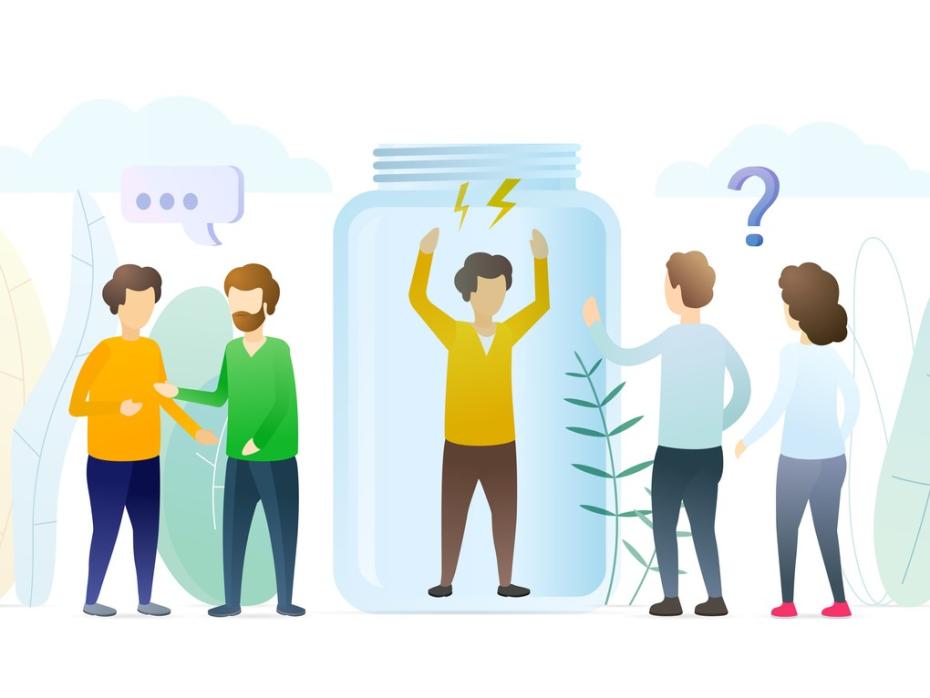International students often face the multiple challenges of balancing content acquisition with language learning, while navigating a culturally unfamiliar environment. To truly support their success, we need to go beyond the standard office hour. We propose leveraging one-to-one coaching sessions as a way to support the academic and professional needs of students from other countries.
International students made up 32.6 per cent of the Georgia Institute of Technology graduate student body in 2024, and that number is predicted to grow in the coming years. English language communication skills courses for these students have provided a fitting opportunity to explore the efficacy of a one-to-one coaching model. The courses, supported through the Center for Teaching and Learning and taught by Language Institute lecturers, are three-credit courses that meet twice weekly. As part of the course requirements, students (maximum of 20 per semester, per course) sign up for two one-to-one coaching sessions with the instructor over the 16 weeks. These meetings provide a dedicated space for guidance and support beyond the classroom.
One-to-one coaching sessions serve as student-success support in three significant areas: providing language learning feedback, offering academic and professional advising, and promoting learner self-efficacy and confidence.
Language learning feedback
Receiving instructional feedback can be stressful for learners, especially in language classes. Being called out publicly for mistakes can cause embarrassment and anxiety. Stephen Krashen’s affective filter theory (1982) asserts that creating a lower-stakes environment can positively impact student motivation, attitude and self-confidence in language learning. One-to-one coaching helps the instructor provide direct feedback about errors or deficiencies in a non-threatening, low-stakes environment. The instructor and the learner can ask questions, seek and deliver feedback, and generate new ideas together.
- Resource collection: English as a second language in higher education
- Campus podcast: cross-cultural communication in the international classroom
- It’s all in the presentation: how to engage international students during lectures
In the one-to-one meeting model, feedback is process-oriented rather than assessment-oriented. The goal shifts from evaluation to exploration, and the participants can focus on reflection, context and nuance. One-to-one coaching sessions focus on skill-building and authentic communication rather than objective correctness. Meetings allow for feedback follow-up, such as identifying resources or developing a personalised improvement plan.
Customised academic and professional advisement
One-to-one meetings allow the instructor to provide explicit academic and professional advising that might not happen otherwise, owing to time and attention constraints in the classroom. In a 30-minute coaching session, the instructor can customise learning and career plans, making the one-to-one time feel more valuable to the student. Individual coaching sessions are a luxury for both instructor and student not often afforded in most courses.
In a one-to-one meeting, the instructor can recommend resources related to the individual’s research, networking and learning goals and encourage the learner to take the next steps in their learning process. This can also lead to opportunities for academic planning and promotion of other courses offered in your programme.
Learner self-efficacy and confidence
A key predictor of student success is believing in one’s own abilities. One-to-one meetings help English language learners build self-efficacy and feel more capable of handling challenges.
In the coaching model, feedback is a relational event – not just red ink on a test or typed comments in a document. Authentic, respectful feedback builds the learner’s trust in the legitimacy of the feedback, and the learner will be more likely to enact improvements. In this co-constructivist approach, learners are invested in improving their own language and communication skills. Once trust is established, a learner is more likely to tap into their intrinsic motivation to solicit, process and respond positively to feedback.
One-to-one coaching is a prime opportunity for non-native-English-speaking students to practise the English-language communication skills they have learned in class. These meetings also provide a space to apply their soft skills, such as how to seek and engage academic support, ask and answer questions, and follow up on an in-person meeting. The coaching session can strengthen the relationship between learner and instructor, fostering a sense of trust and creating a supportive learning environment.
A high-touch approach with meaningful benefits for student success
We acknowledge this model is a high-touch, time-intensive approach. However, we believe the many positive impacts outweigh the potential demands. Students have attributed much of their academic and professional success to the benefits they received from the one-to-one coaching sessions, citing critical language improvement, interpersonal communicative awareness and increased confidence as clear benefits of such meetings.
To address time demand challenges, we believe limiting the meeting to 30 minutes allows for meaningful focus without taking up too much time. Limiting the number of sessions to two per semester also curbs the time commitment over the semester. Holding the meetings remotely adds convenience and allows participants to share screens and collaborate on documents in real time.
Implementing 30-minute coaching meetings in your course is a simple yet effective way to support student success, particularly for non-native English speakers. By embracing this model, faculty can create a classroom culture that prioritises individual growth and enhances each learner’s potential. One-to-one meetings help learners communicate with more confidence, receive and process feedback, and build meaningful relationships. By prioritising these individual interactions, faculty can create a supportive learning environment that empowers learners to thrive academically and beyond.
R. Katherine Samford is the director and a principal lecturer and Kendall Nelson is a senior lecturer, both at the Georgia Tech Language Institute at the Georgia Institute of Technology.
If you would like advice and insight from academics and university staff delivered direct to your inbox each week, sign up for the Campus newsletter.




comment1
(No subject)